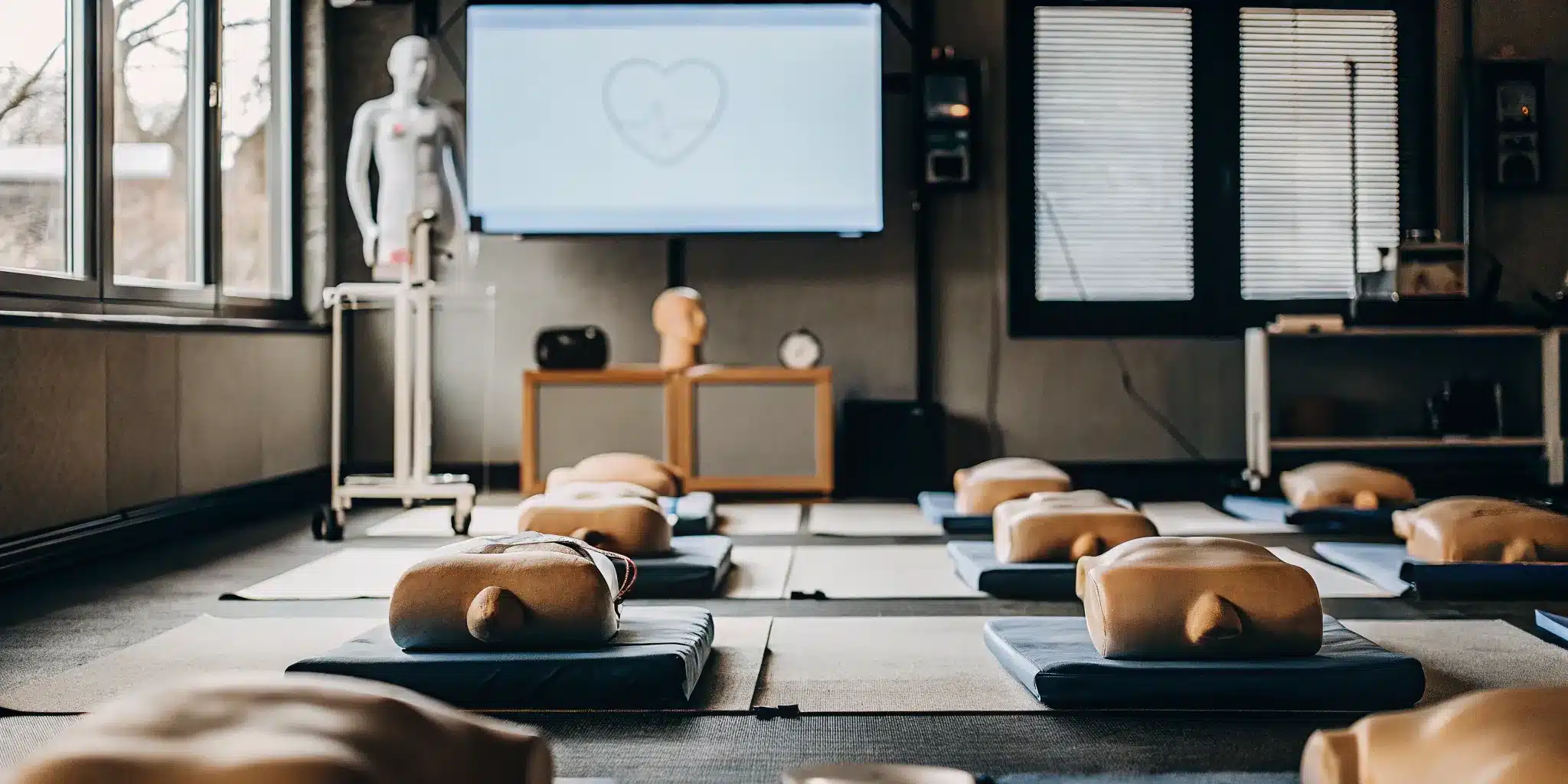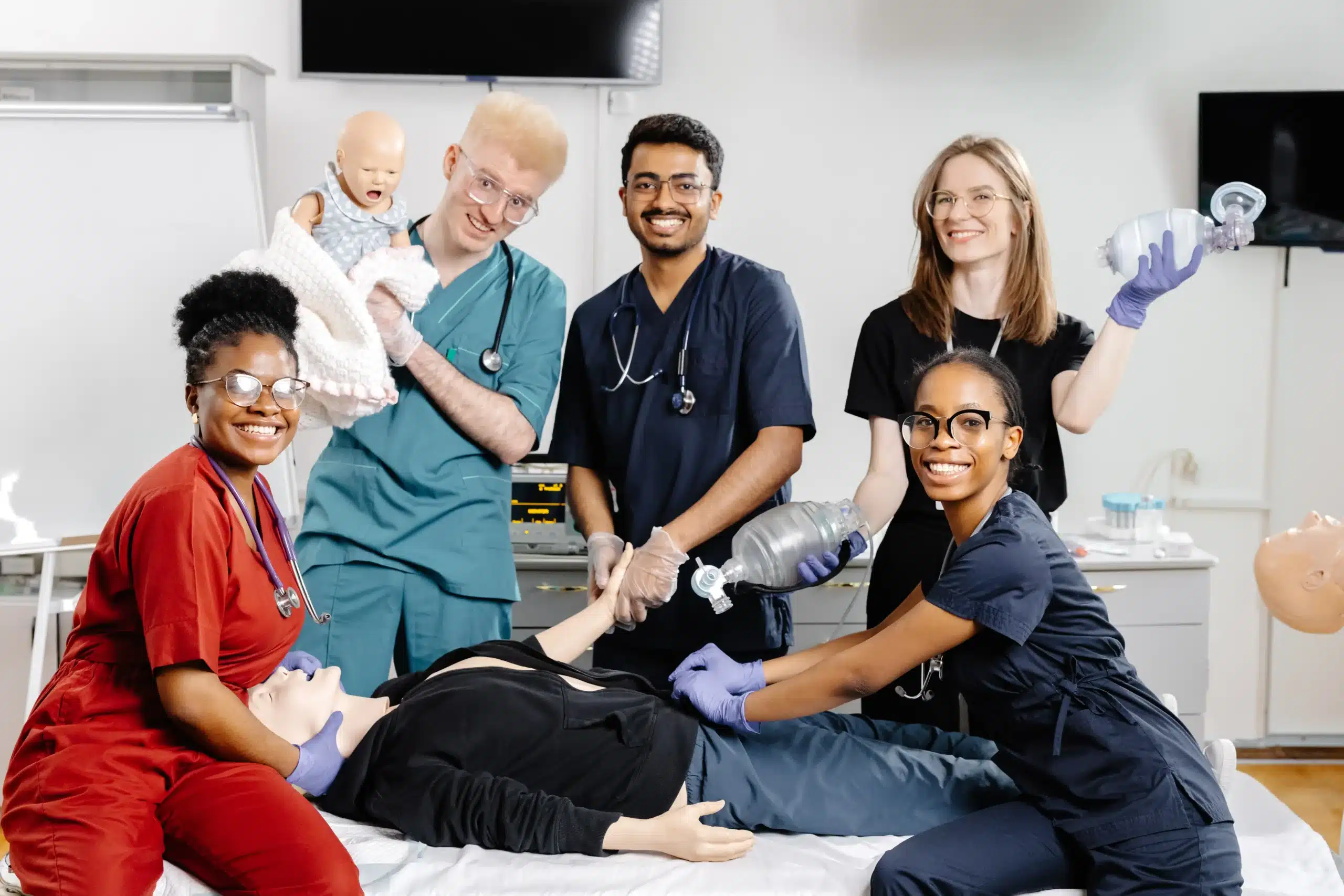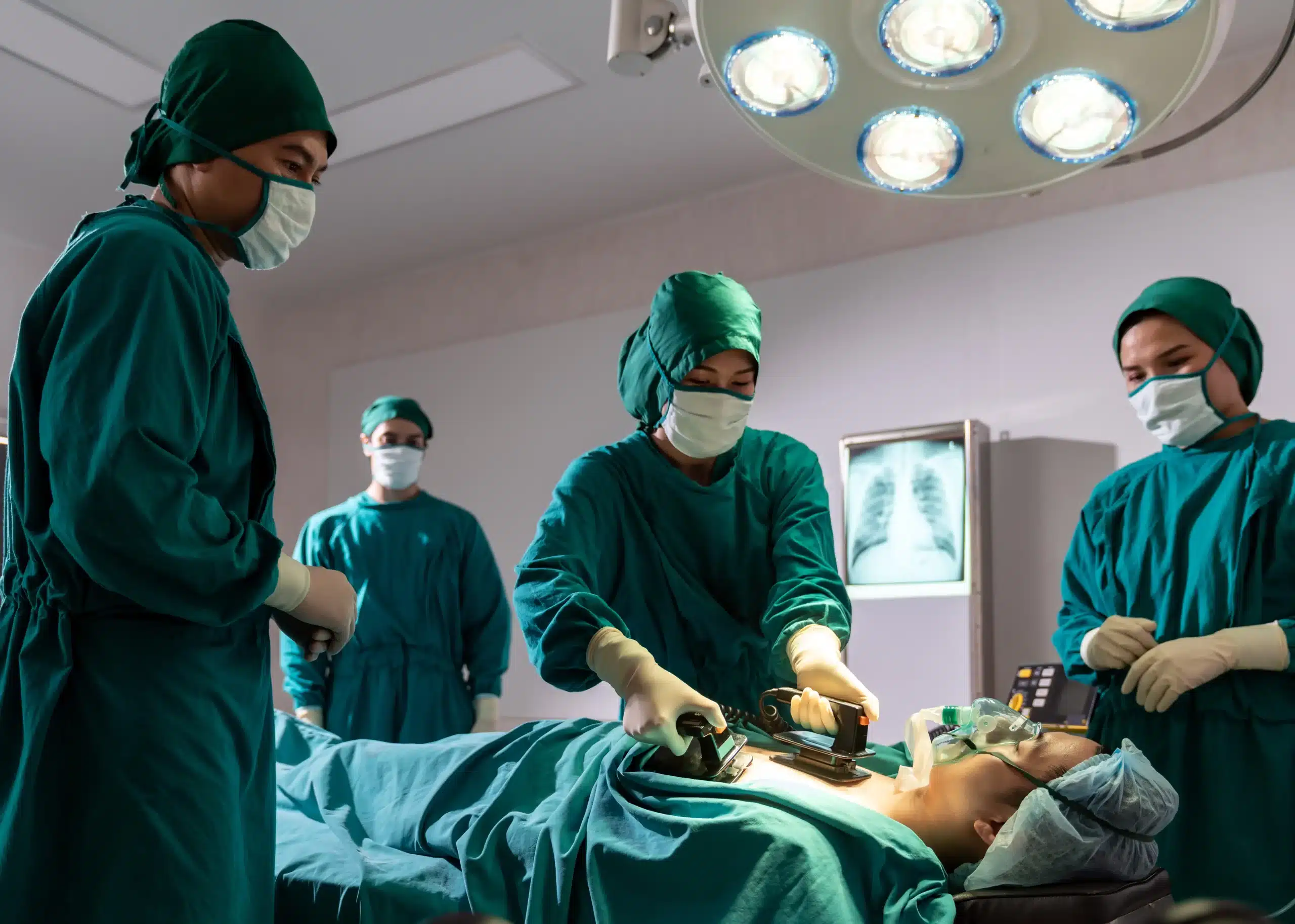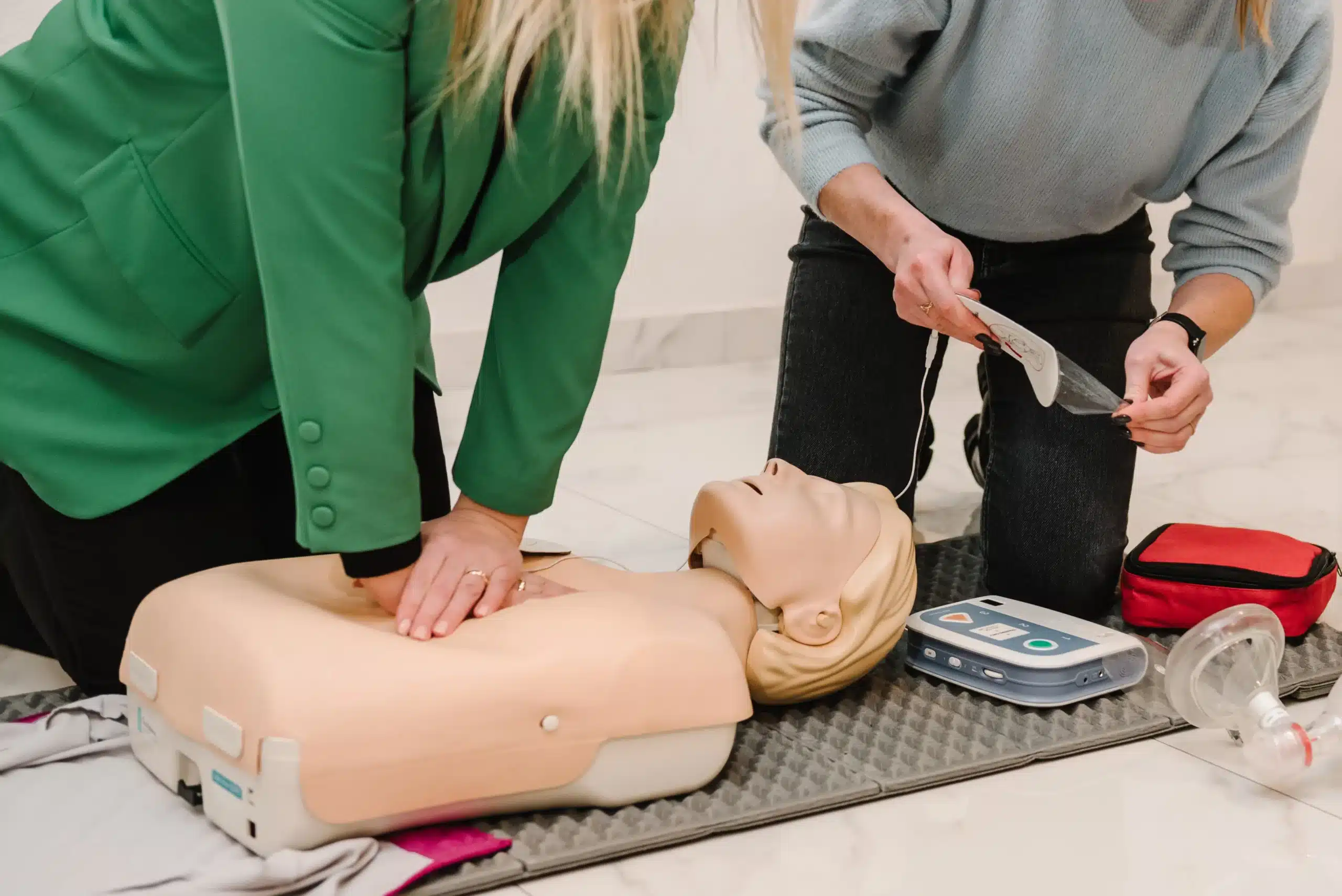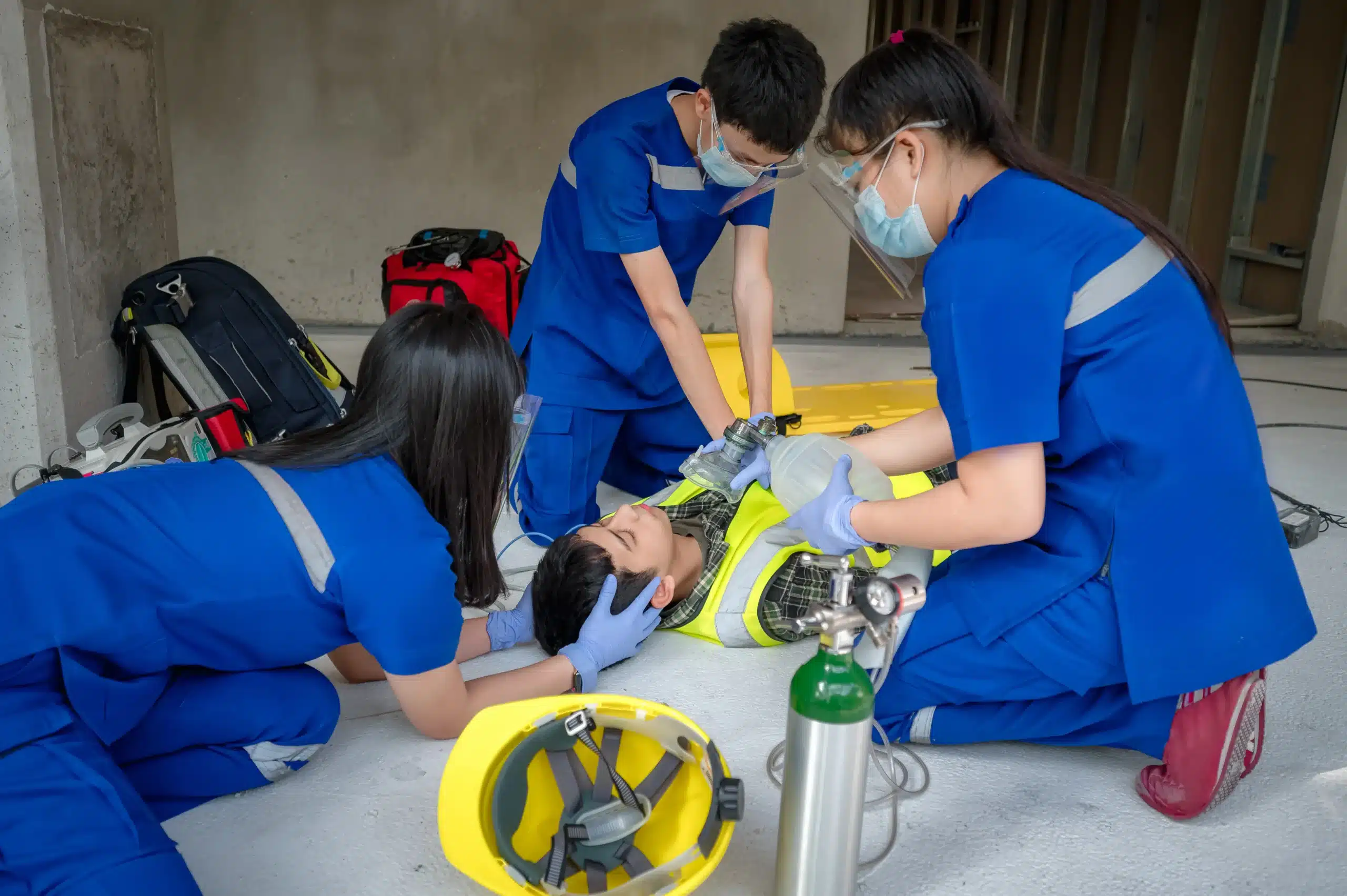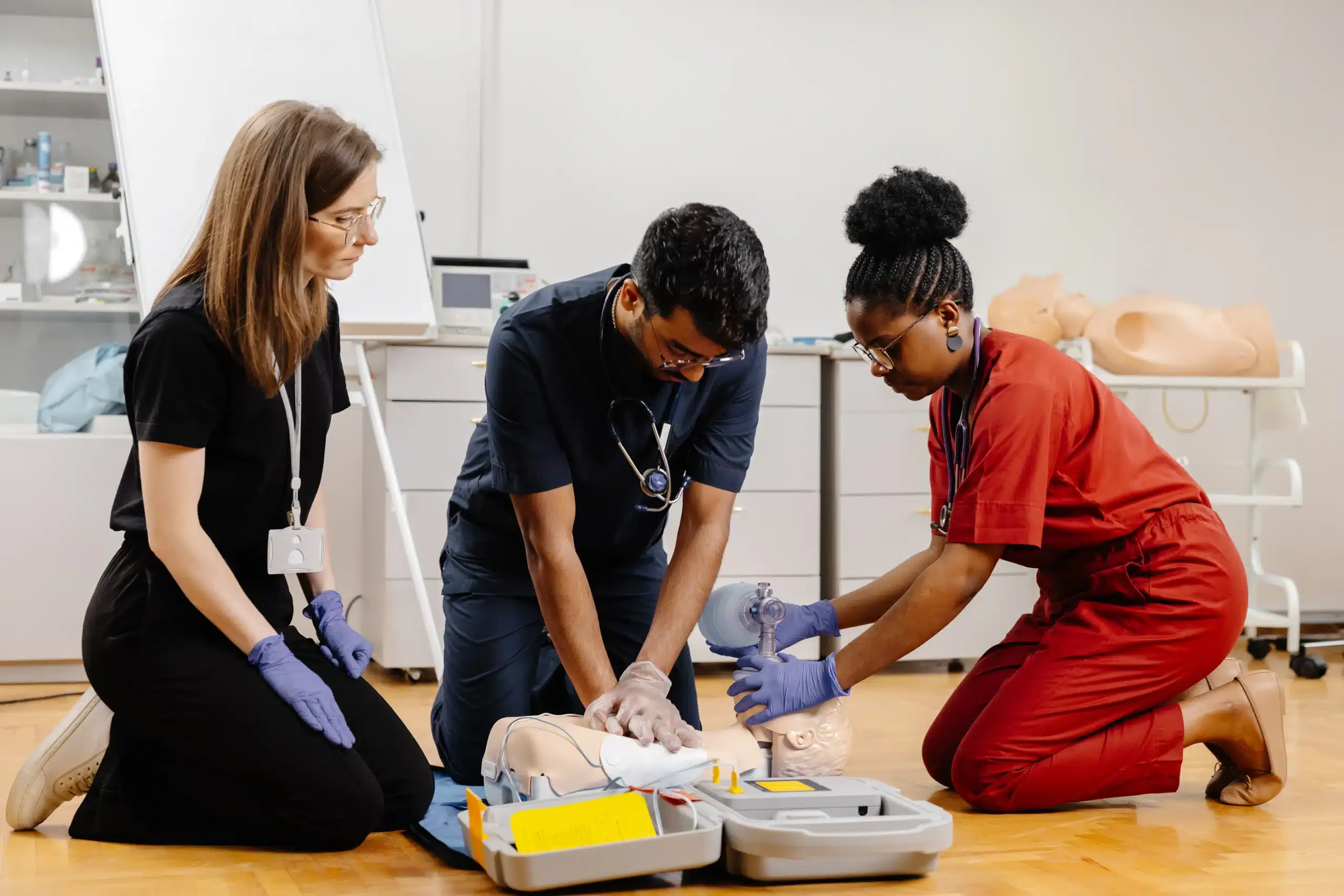Are you a healthcare professional in Brentwood, CA, looking to advance your career and enhance your life-saving skills? Perhaps you’re exploring a medical career and want to understand the essential certifications like BLS, ACLS, and PALS. This comprehensive guide breaks down everything you need to know about these crucial certifications, from understanding the basics to finding the right training program in Brentwood, Antioch, or Concord. We’ll cover the key differences between BLS, ACLS, and PALS training, who should take each course, and how these certifications can significantly impact your career and patient care. Whether you’re a seasoned healthcare provider or just starting, this guide offers valuable insights and resources to help you succeed. We’ll also discuss the importance of choosing a reputable training provider like Safety Training Seminars, known for its comprehensive American Heart Association courses and commitment to student success.
Key Takeaways
- Choose the Right Certification: BLS, ACLS, and PALS address different levels of medical emergencies. BLS provides foundational life support skills, ACLS focuses on advanced cardiac care, and PALS specializes in pediatric emergencies. Select the certification that aligns with your career goals and patient interaction.
- Find a Training Program That Fits Your Needs: Look for a reputable provider offering flexible learning options, including online, in-person, or blended formats. Hands-on practice and interaction with instructors are crucial for developing confidence and proficiency.
- Make the Most of Your Training: These certifications are valuable career assets. Maintain your skills through regular practice and continuing education to stay up-to-date with the latest guidelines and enhance your career prospects.
What are BLS, ACLS, and PALS?
If you’re a healthcare provider or exploring a medical career, you’ll likely encounter the acronyms BLS, ACLS, and PALS. These certifications represent different levels of life support training, each designed to equip you with the skills to handle specific medical emergencies. Let’s break down what each one entails:
Basic Life Support (BLS) provides the foundational skills needed to respond to life-threatening emergencies. This training covers essential techniques like CPR (chest compressions and rescue breaths), using an AED, and relieving choking. BLS certification is crucial for healthcare professionals, first responders, and anyone who wants to be prepared to help in a crisis. It emphasizes early recognition and intervention to improve patient outcomes. Learn more on our BLS page.
Advanced Cardiovascular Life Support (ACLS) builds upon the fundamentals of BLS. It covers more advanced techniques for managing cardiovascular emergencies, including administering medications, using specialized breathing equipment, and managing complex cardiac rhythms. ACLS certification is vital for healthcare providers involved in treating serious heart conditions, such as physicians, nurses, and paramedics. It equips them with the knowledge and skills to provide comprehensive care during these critical events. Explore our ACLS course for more details.
Pediatric Advanced Life Support (PALS) focuses specifically on the emergency care of infants and children. This specialized training teaches healthcare providers how to recognize and treat critical conditions like respiratory distress, shock, and cardiac emergencies in young patients. PALS certification is essential for those working in pediatric settings, including pediatricians, pediatric nurses, and emergency medical personnel. It empowers them to provide age-appropriate and effective care during pediatric emergencies. Our PALS certification page offers additional details.
Why are BLS, ACLS, and PALS Important?
These certifications are key for healthcare providers and anyone who wants to be prepared for a medical emergency. From foundational life support to specialized pediatric care, understanding their importance can help you choose the right training.
BLS: Your Foundation in Life-Saving Skills
Basic Life Support (BLS) provides the essential skills to respond to life-threatening emergencies. It’s the first line of defense in a crisis. BLS training equips you to perform CPR (chest compressions and rescue breaths), use an AED, and relieve choking. These skills are critical for hospital workers and invaluable for anyone who might encounter a medical emergency. Whether you’re a healthcare professional, a caregiver, or simply want to be prepared, BLS certification gives you the confidence to act quickly and potentially save a life. Our BLS certification courses in Brentwood, CA, will empower you with these fundamental techniques.
ACLS: Mastering Advanced Cardiac Interventions
Advanced Cardiovascular Life Support (ACLS) builds on the foundation of BLS. It gives healthcare professionals advanced techniques for managing life-threatening cardiac emergencies. ACLS training covers complex situations, including using specialized breathing equipment, administering medications, and handling defibrillation in intricate scenarios. This certification is essential for those in critical care settings—emergency rooms, intensive care units, and operating rooms—where responding to serious heart problems is common. ACLS empowers medical professionals to make quick, informed decisions and provide the highest level of care during critical cardiac events.
PALS: Providing Specialized Pediatric Care
Pediatric Advanced Life Support (PALS) focuses on the unique needs of infants and children. This specialized training equips healthcare providers to recognize and treat critical conditions in young patients. PALS certification covers respiratory distress, shock, and pediatric cardiac emergencies, offering a comprehensive approach to pediatric care in crises. For anyone working in pediatrics—nurses, paramedics, pediatricians, and emergency medical technicians—PALS is vital for ensuring the best possible outcomes for young patients facing medical emergencies.
BLS, ACLS, and PALS: What’s the Difference?
Who Should Take Which Course?
These certifications address different levels of healthcare providers. BLS (Basic Life Support) provides a foundation in CPR (chest compressions and rescue breaths), using an AED (automated external defibrillator), and helping someone who is choking. It’s essential for hospital workers and a great starting point for anyone interested in healthcare. ACLS (Advanced Cardiovascular Life Support) builds on BLS skills, covering advanced techniques for heart emergencies, such as using special breathing equipment, administering medications, and handling complex defibrillation scenarios. It’s crucial for healthcare professionals who regularly encounter serious heart conditions. PALS (Pediatric Advanced Life Support) focuses on the specific needs of infants and children. The course teaches how to recognize and address breathing problems, shock, and pediatric heart emergencies. Anyone working with kids, from paramedics to pediatricians, benefits from this specialized training. Safety Training Seminars offers all of these American Heart Association courses in Brentwood, CA. We also offer specialized courses like the American Academy of Pediatrics NRP.
What Will You Learn?
These courses, often provided through organizations like the American Red Cross, emphasize the latest medical science and efficient course design. You’ll gain practical skills and the knowledge behind them, allowing you to confidently respond to emergencies. The curriculum often meets various state and national accreditation requirements and incorporates insights from leading medical organizations. For example, our PALS course covers the specific protocols and techniques for pediatric emergencies. We also offer EMSA Child Care Health & Safety training.
How Will You Use Your Skills?
Having the right training—whether BLS, ACLS, or PALS—can significantly impact a patient’s outcome during a crisis. These skills empower you to provide immediate, effective care, potentially saving lives. They also highlight the importance of continued learning and teamwork in emergency medical situations. Consider our discount group classes to train your entire team and improve your collective response. You can also find additional resources in our Northern CA CPR Directory.
Choose the Right Training Format
Deciding on the best training format depends on your learning style, schedule, and how much hands-on practice you want. Let’s explore online, in-person, and blended learning for BLS, ACLS, and PALS certification.
Online Courses: Learn at Your Own Pace
Online courses offer flexibility. Study anytime, anywhere, at your own speed—perfect for busy schedules or if you prefer independent learning. Many online programs, like those offered through Save a Life, align with the latest ILCOR standards, ensuring high-quality instruction. Keep in mind that online courses often require self-discipline.
In-Person Training: Get Hands-On Experience
In-person training lets you interact with instructors and classmates, getting real-time feedback and practicing with equipment. Organizations like the American Red Cross offer in-person BLS, ACLS, and PALS courses that focus on practical skills. This immersive learning can be especially helpful for those who thrive in hands-on environments.
Blended Learning: The Best of Both Worlds
Blended learning combines online convenience with in-person skills sessions. Work through the material online at your own pace, then attend a hands-on session for personalized feedback. This balanced approach suits various learning styles and schedules. The Red Cross offers blended learning for ALS and PALS certifications, demonstrating the effectiveness of this format.
Costs and Discounts
Investing in your life-saving skills is an investment in your community. Understanding the costs associated with BLS, ACLS, and PALS training can help you budget effectively. At Safety Training Seminars, we believe in transparent pricing and offer several ways to make these essential courses accessible.
Individual Course Prices
We understand that cost is a factor when choosing a training provider. Our individual course prices are competitive and reflect our commitment to providing high-quality instruction without unnecessary markups. For our most up-to-date pricing, visit our website.
Bundles and Savings
If you’re planning to take multiple courses, consider our bundled options. Bundling BLS, ACLS, and PALS training together not only saves you money but also streamlines the certification process. Learn more about our group discounts to see how bundling can make training more affordable.
Train Your Team
For healthcare organizations and businesses looking to train multiple employees, we offer attractive group discounts. Equipping your team with these vital skills enhances your workplace safety and demonstrates a commitment to preparedness. Contact us to discuss your team’s needs and explore tailored pricing options. We’re happy to work with you to create a training plan that fits your budget and schedule.
Prerequisites and Certification
Knowing the prerequisites for each course and how certification works helps you prepare for your training. This section clarifies the pathway for BLS, ACLS, and PALS certifications.
BLS: Your First Step
Basic Life Support (BLS) training is often the first step for anyone entering the healthcare field or wanting to be prepared for emergencies. BLS certification covers essential life-saving techniques, including CPR, using an AED, and basic airway management. There aren’t any prerequisites for BLS training, making it accessible to everyone. This foundational training equips you to respond effectively in critical situations, like assisting someone who is choking or experiencing cardiac arrest. Learn more about common misconceptions surrounding BLS certification.
ACLS and PALS Requirements
Building upon the foundational skills learned in BLS, both Advanced Cardiovascular Life Support (ACLS) and Pediatric Advanced Life Support (PALS) courses require a current BLS certification. This ensures students have the core life support knowledge before learning more advanced techniques. ACLS focuses on adult cardiac emergencies, while PALS addresses the specific needs of infants and children. These advanced certifications, like many others, are typically valid for two years.
Renewing Your Certification
To maintain your proficiency and keep your skills sharp, regular training and recertification are essential. BLS, ACLS, and PALS certifications are generally valid for two years. Recertification involves completing a refresher course to update your knowledge and stay current on the latest guidelines and best practices. Learn more about maintaining these vital certifications. Staying up-to-date ensures you can confidently and effectively respond to emergencies, providing the best possible care.
Overcome Training Challenges
Let’s be honest, adding another training to your schedule can feel overwhelming. Whether you’re pursuing BLS, ACLS, or PALS certification, or just trying to stay current, finding the time and resources can be a challenge. But don’t worry, we’ve got some tips to help you overcome these hurdles and succeed.
Find the Time to Train
One of the biggest obstacles for healthcare providers is balancing work with training. Long shifts and unpredictable schedules make it tough to commit to a traditional course. Look for providers like Safety Training Seminars who offer flexible scheduling options. Think weekend courses, evening classes, or even split sessions to fit your busy life. Remember, even small chunks of study time can add up!
Stay Sharp Between Renewals
Staying current with your certifications is crucial for providing top-notch patient care. Regular training ensures you’re up-to-date on the latest guidelines and best practices. RQI Partners emphasizes the importance of ongoing training to maintain proficiency in BLS, ACLS, and PALS. Consider incorporating regular review sessions into your routine. Use online resources, practice scenarios with colleagues, or take refresher courses to keep your skills sharp. Safety Training Seminars offers an RQI program that can help you efficiently maintain your certifications.
Debunking Common Myths
Misconceptions about these certifications can sometimes discourage people from pursuing or renewing them. Let’s clear up a few common myths:
- Myth: These certifications are only for doctors and nurses. Truth: BLS, ACLS, and PALS certifications are valuable for a wide range of healthcare professionals, including paramedics, EMTs, respiratory therapists, and others. Anyone involved in patient care can benefit from these life-saving skills.
- Myth: Online training isn’t as good as in-person training. Truth: While hands-on practice is essential, online courses can be a great way to learn the cognitive material at your own pace. Many programs, like those offered by Safety Training Seminars, combine online learning with in-person skills sessions for a comprehensive learning experience.
- Myth: Once certified, you’re good for life. Truth: Guidelines and best practices change, so regular renewal is essential to maintain your skills and knowledge. Don’t let your certifications lapse. Stay current to provide the best possible care. Resources like Medtigo and Cascade Training offer helpful guides addressing common misconceptions about BLS and ACLS.
Find the Right Training Provider
Choosing the right training provider is key to a successful learning experience. It can mean the difference between feeling confident in your skills and just going through the motions. This section helps you identify reputable training centers and understand what sets them apart.
What to Look For
First things first, make sure any provider you consider is authorized by the American Heart Association. This ensures the courses meet the latest guidelines and standards. Also, consider your schedule and look for a provider offering flexible options, including online and in-person classes. Finally, hands-on practice and simulations are crucial for building confidence in emergencies, so prioritize training centers that offer these learning opportunities.
Top Brentwood Training Centers
Here are a few options for those seeking training in and around Brentwood:
Safety Training Seminars
Safety Training Seminars is a woman-owned, AHA Training Center offering high-quality American Heart Association BLS, ACLS, PALS, CPR, and First-aid courses right here in Brentwood. They offer courses seven days a week. You can find more information about their course schedule.
AHA-Authorized Training
For medical professionals, the American Heart Association RQI (Resuscitation Quality Improvement) program offers a modern and efficient path to official AHA certification for BLS, ACLS, and PALS.
Local Hospitals
Many local hospitals provide BLS, ACLS, and PALS training for their staff. Check with hospitals in your area for potential training opportunities. This can be a convenient option for healthcare professionals already working within a hospital system.
Get the Most From Your Certifications
Earning your BLS, ACLS, and PALS certifications is a significant achievement. These credentials demonstrate your commitment to providing high-quality care and open doors to exciting career opportunities. Here’s how to truly maximize the impact of your certifications:
Advance Your Career
For healthcare professionals, these certifications are more than just requirements—they’re valuable assets that can propel your career forward. Certifications like BLS, ACLS, and PALS represent specialized training that can significantly enhance a nurse’s career trajectory, according to nurse.org. They equip you with the skills and credentials to advance into management and leadership roles, and even pave the way for pursuing advanced practice roles. Whether you’re aiming for a promotion, a new specialization, or simply want to stand out in a competitive field, these certifications provide a distinct advantage. Consider adding certifications like PEARS, TNCC, and ENPC to further specialize your skillset, as suggested by this ACLS Academy article.
Improve Patient Care
Beyond career advancement, these certifications directly translate to improved patient care. ACLS.com highlights how BLS training leads to better patient outcomes. Your proficiency in these life-saving techniques can make a critical difference in emergency situations. Having the confidence and skills to respond effectively can significantly impact a patient’s chances of recovery. Furthermore, ensuring nurses are BLS-certified helps healthcare facilities meet regulatory standards and reinforces their commitment to quality patient care, as explained by this CPR AED Course article.
Stay Up-to-Date
The healthcare field is constantly evolving, with new research, updated guidelines, and advanced techniques emerging regularly. That’s why staying current with your certifications is crucial. RQI Partners emphasizes the importance of regular training and recertification to maintain proficiency in BLS, ACLS, and PALS. This ensures you’re always equipped with the latest knowledge and best practices. With the rapid pace of medical advancements, staying up-to-date is essential for providing the highest standard of care. This ACLS article notes the accelerating pace of medical knowledge growth, highlighting the need for continuous learning and development. Regularly refreshing your skills not only benefits your patients but also keeps you at the forefront of your profession.
Prepare for Success
Getting ready for your BLS, ACLS, or PALS certification doesn’t have to be stressful. With the right approach, you can feel confident and prepared on exam day. Here’s how to make the most of your study time:
Online Resources and Practice Tests
The internet offers a wealth of resources to supplement your learning. Sites like Health Ed Solutions provide comprehensive materials for ACLS, PALS, BLS, and NRP certification. Use practice tests to assess your knowledge and pinpoint areas for improvement. As Peter Densen, MD, notes in this article on medical education, medical knowledge is constantly evolving. Online resources can help you stay current with these advancements.
Study Groups and Peer Learning
Connecting with other students can significantly improve your learning. Form a study group to review material, discuss concepts, and test each other’s knowledge. Regular training and recertification are key for maintaining proficiency, and peer learning offers valuable support. Sharing different perspectives and experiences can deepen your understanding.
Hands-On Practice and Simulations
Since these certifications are skills-based, hands-on practice is essential. The AHA’s BLS Course highlights the importance of performing CPR and other basic life support skills in various settings. Simulation training provides a safe environment to practice, build muscle memory, and gain confidence in responding to emergencies. This practice is invaluable for mastering the techniques required for BLS, ACLS, and PALS.
Related Articles
- Why CPR is Important in Healthcare – Brentwood CPR Classes
- BLS CPR Classes in Brentwood, CA – Brentwood CPR Classes
- AHA ACLS Classes in Brentwood, CA – Brentwood CPR Classes
- AHA PALS Classes in Brentwood, CA – Brentwood CPR Classes
- NRP Certification Classes in Brentwood, CA – Brentwood CPR Classes
Frequently Asked Questions
Do I need all three certifications (BLS, ACLS, PALS)?
Not necessarily. It depends on your career goals and the type of patients you work with. BLS is a foundational certification recommended for all healthcare providers. ACLS is geared towards those who treat adult cardiac emergencies, while PALS focuses on the care of infants and children. Consider your current role and future aspirations when deciding which certifications to pursue.
How long do these certifications last, and how do I renew them?
BLS, ACLS, and PALS certifications are typically valid for two years. Renewal involves completing a recertification course before your current certification expires. Staying current ensures you’re up-to-date on the latest guidelines and best practices.
What if I have a busy schedule? Are there flexible training options?
Yes, many training centers understand the demands of healthcare professionals and offer flexible scheduling. Look for providers offering weekend or evening courses, online options, or blended learning formats that combine online coursework with in-person skills sessions.
How can I best prepare for these certification exams?
Take advantage of online resources, practice tests, and study groups. Hands-on practice is crucial, so seek out opportunities to practice your skills in a simulated environment. Many training centers offer practice sessions and refresher courses to help you prepare.
What’s the difference between online and in-person training?
Online training offers flexibility and self-paced learning, while in-person training provides hands-on practice and direct interaction with instructors. Blended learning combines the benefits of both formats. Consider your learning style and preferences when choosing the best format for you.
This article was written for free by MEGA SEO.


